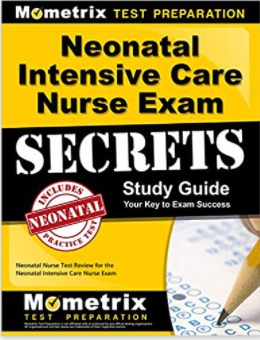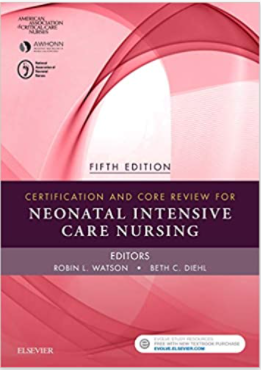Hot Tips for Nurses Starting in the NICU!
- Jul 1, 2024
- 7 min read
Updated: Oct 10, 2024
It’s an exciting time to become a NICU nurse: hospital admissions are at an all-time high, and persistent nursing shortages mean there are tons of bedside jobs available. Whether you’re a new graduate, are a practicing nurse in a different specialty, or are in nursing school exploring employment options, it’s always a good time to make sure you know what’s down the pipeline in terms of career moves.

Quick intro, for those who don't know me! My name is Tori Meskin, better known as @nurse.tori_ on insta. As a NICU nurse, blogger, and podcaster this is one of the most common questions I receive!
Here, we answer a few frequently asked questions about starting out as a NICU RN, and provide tips for nurses looking to begin their career on a positive note :)

Frequently Asked Questions for Starting as a NICU RN
Are there any special education requirements for working in the NICU?
The short answer is “no”. You’ll need the same schooling to work in the NICU as you would any other nursing job — either an Associate’s Degree in Nursing (ADN) or a Bachelor’s of Science in Nursing (BSN). Most hospitals give priority to RN’s with a BSN or may require that you go back to get your BSN within a certain number of years of being hired. I, as of 2024, completed my MSN Leadership through Capella University and highly recommend their specialized, flexible undergrad programs as well if you are looking to advance your degree in Leadership & Administration, Education, Informatics, or Care Coordination.
What NICU Nurse Certifications Are There? Are these Required?
Certifications are not required, but may help you gain a competitive edge against other job applicants. Being certified shows that you’ve worked as a NICU nurse for a number of years and have the knowledge and clinical experience necessary to provide safe patient care.
There are two main certification pathways you can take: the RNC-NIC route, or the CCRN route.
Types of NICU Nurse Certifications:
RNC-NIC
C-ELBW
C-NNIC
CCRN-Neonatal
If you’re interested in learning more about NICU nurse certification, be sure to check out our blog on how to earn a nursing certification!
HOT TIP!!! To stay organized I suggest that you create a photo album or NOTES iphone page named “Nursing Compliance” or “Certifications / CEUs” in your phone with screenshots of each certification you have completed in order to best keep track of them!
Do NICU Nurses Only Work in Hospital Settings?
Most neonatal intensive care units are located in pediatric or women’s health hospitals, so NICU nursing occurs mostly in these acute care settings. However, NICU nurses can work in a variety of settings, including:
Community health organizations
Emergency medical evacuation and transport services
Birthing centers
What Types of Things Would I Be Seeing and Doing at Work?
There are four NICU acuity levels: Level I to Level IV. The most basic Level I NICUs provide basic resuscitation on premature but otherwise healthy infants, whereas the most acute Level IV NICUs provide complex treatments for critically ill newborns.
The skills you’ll be expected to have will be different depending on the type of facility you work in. Here are some of the tasks that you could be asked to perform:
Starting IV lines
Collecting vitals
Documenting assessment findings
Feeding infants
Completing diaper changes and documenting output volume
Administering medications
Collecting lab specimen
Performing genetic screening tests
Managing airways and ventilators
Assisting during emergencies
Attending high-risk births
Educating family members
Providing lactation assistance to new mothers
When I arrive at my level IV NICU I am met with my assignment, gather my report sheets and learn from the shift nurse before me which meds to give, labs to gather and tasks to perform. I do my safety checks, introduce myself to parents when applicable and then start hands-on care.
During an average 12 hour shift you will focus on 1 to 4 patients (this largely depends on your STATE and hospital ratios) depending on staffing and their acuity. Your role varies from day to day but overall as the NICU nurse, you perform assessments, monitor / record vital signs, draw labs, administer medications, admit & discharge, pre-op and post op surgical care, assist with procedures, assist with diagnostic imaging, monitor your patient for any sudden changes, prepare feedings, change out IV fluids, perform blood draws, educate family members, and ultimately be your tiny patient’s advocate! Not to mention charting, uhhhhh (my least favorite part, but one of the most important).

What Types of Clinicians Provide Care in the NICU?
Like in any unit or facility, nurses in the NICU don’t work independently. You’ll work with a strong multidisciplinary team of:
Doctors (called neonatologists)
Nurse practitioners (called NNPs)
Respiratory therapists
Dieticians
Physical and occupational therapists
Social workers
Secretaries
Music therapists
Translators
TIP: Make friends with other clinicians in your unit — not JUST the nurses. Your shifts will go so much smoother if you are working with clinicians you know and trust. Mistakes happen when groups work in “silos” and don’t openly plan or communicate, so be sure to put yourself out there when you’re new to a unit!
What Will My Orientation Look Like?
If you’re a new graduate nurse, you’ll probably be looking to join a NICU nurse residency program. These programs often involve lengthy orientations in classroom and clinical settings, and can be a great way to ease your way into your first nursing job.
If you are an experienced NICU nurse switching hospitals, your orientation may be a bit quicker, as you’ll be expected to know the basics already and will be focusing more on getting familiar with facility-specific rules and procedures.
Most orientations will include any or all of the following elements:
NICU RN Orientation Checklist:
Human resources paperwork (dress code policy, email log-in details, ID badge photos, payment details, etc.)
Unit orientation (safety equipment, medication room, patient care area, nursing station, etc.)
Explain documentation standards
Review shift workflow (RN to RN report, safety checks, physical assessments, medication administration, bathtimes, visiting hours, etc.)
Precepted orientation (can be anywhere between 4 weeks and 6 months long, depending on the acuity of the unit and the nurse’s clinical experience)
NICU RN ORIENTATION GOALS
Here are a few things you can think about during your orientation periods!
Identify 3 goals you would like to accomplish on your shift.
Identify 3 ways you took responsibility today.
Identify if your goals were met and how you accomplished them!
What types of patients were you assigned?
What skills/competencies did you learn?
What are your goals on your next shift?
Feedback from your preceptor. What did you do right? Where can you improve?
Do You Recommend Any Resources to Help Me Prepare?
So much of what you need to know about working in the NICU will be learned on the unit! If you really want to prepare, I recommend the following review courses and books!
♡EXTRA TIPS♡
MEDICATION ADMINISTRATION EXPECTATIONS
This one of the most important parts of our job as nurses. Medication administration and something we should not take lightly. (Especially in our NICU patient population where every decimal / ml counts. First things first, don't freak out. This will become second nature to you the more you are in NICU practice.
It is nerving at first, but the weight-based medication administration gets easier with time. HINT: ALWAYS KNOW THE WEIGHT OF YOUR BABY! You will get to a point where you can literally eyeball an order and think to yourself, "Yep, that's on point, OR NOPE!! Wayyy too much (Resident who is writing orders for the first time!)." You are the last line of defense, so when in doubt, CLARIFY or ASK THE QUESTION.

Refer to your Safe Medication Administration Policies, but here are some general ideas.
NICU MEDICATION TIPS TO CONSIDER
1. Look up every medication!
2. You should know the following before administering
safe dose ranges
why are you giving the medication?
how fast to run the medication (IV route)
3. Take Medication bedside. With EMR and manual conduct review Medication Rights
right patient - check ID band
right medication
right time
right route
right reason
right dose
right documentation
3. Barcode scan (and or second nurse verification) administer safely once all checks have been thoroughly completed
4. Ensure proper documentation

GET TO KNOW YOUR TEAM!
This is KEY! And something we don't talk about nearly enough. NICU care takes a village and the faster you get to know your team, the easier it will be for you to provide tip top care to your patients!
1. Neonatologists
2. Fellow NICU Nurses
3. NP / PA Advance Practice Providers
4. RTs!!!! THESE ARE YOUR BEST FRIENDS; GET TO KNOW THEM WELL!
5. Nutritionists / Registered Dietitians
6. Developmental Specialists (OT/PT, SLP)
7. Social Workers
8. Secretaries
9. Lactation Specialists
10. Translation Services
The list goes on...but you get the idea! Get to know your resources and team members.
As with anything, gaining confidence and skill in practice takes time. Don't be too hard on yourself. It took me several years to feel comfortable working as a NICU nurse, and even after 10+ years, these babies can throw me for a loop! I hope this blog was helpful for you!
Every unit and hospital offers different orientations and cultures in terms of NICU nurse care. Be fearless and humble. Take the good with the bad. If you make a mistake, own it and learn from it! We are human, and we have all been there! Love you guys! Let me know what you thought about this blog below! I love your feedback and always try to give you nurse life on the pulse.
If you are looking for a great listen, here is "Life of a NICU Nurse," where I break down my experiences as a NICU nurse over the past 8 years. It's a fun one full of the real real on being a NICU nurse!


Tori Meskin has been a dedicated clinician since 2012, working in acute care and inpatient NICU settings in Southern California. She holds a National NICU Nurse Certification (RNC-NIC) and has extensive experience as a travel NICU nurse. Tori is a sponsored MSN student at Capella University and a Brave Beginnings Ambassador. She recently launched NICUity, a company dedicated to empowering NICU professionals with education, bedside tools, and resources. Follow her journey as she navigates the NICU world, married life, and new motherhood, all while juggling work, school, and content creation. Discover her top-notch tips and tricks at www.tipsfromtori.com or contact her at tipsfromtorimanagement@gmail.com.





















Comments